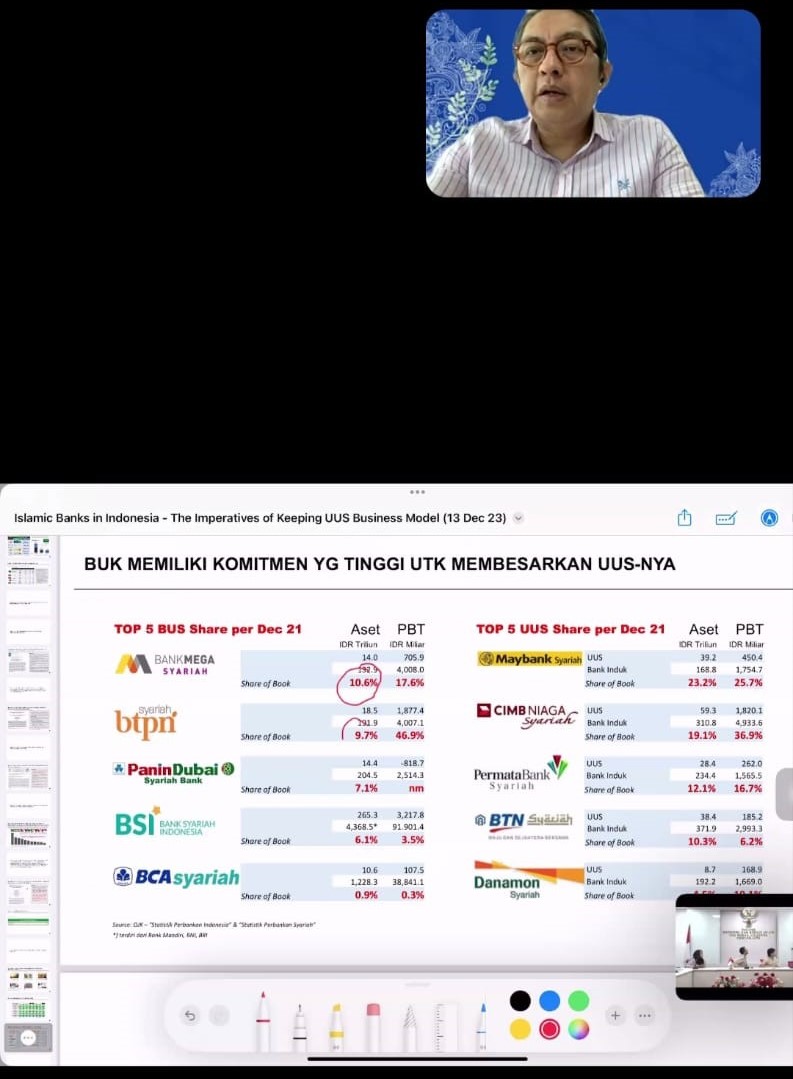Future Outlook and Spin-Off Issues: CEO Talk Series First Edition with Herwin Bustawan

Yogyakarta (8/12) - In order to meet the growing challenges of the professional sphere, students must not only grasp the theories presented in academia, but also gain genuine, practical insights from experienced business leaders.
As the top decision-makers in a company, Chief Executive Officers (CEOs) possess firsthand experience in crafting strategic decisions, allocating resources, and navigating a wide array of business challenges. This expertise not only encompasses the intricacies of daily business functions but also offers insight into market dynamics and industry shifts that can significantly influence the career paths of students.
Therefore, the Islamic Economics Study Program initiated the CEO Talk Series program, successfully held on December 7, 2023. The first edition of the CEO Talk Series featured Herwin Bustawan, the Director of the Sharia Business Unit at PT Bank Permata, addressing the theme "Islamic Banks in Indonesia: Future Prospects and Spin-off Issues."
The event commenced with a welcome address from Dr. Abdul Qoyyum, SEI., M.Sc., Fin., the Head of the Islamic Economics Study Program and the initiator of the CEO Talk Series program. In his speech, he delved into the present state of the Islamic banking sector in Indonesia, shedding light on several emerging issues. He underscored the significance of students being well-informed about these industry developments and challenges. This underscores the vital role of industry practitioners in imparting practical knowledge, a key benefit offered by the program's speakers.
During his presentation, Herwin Bustawan elucidated that the spin-off from the Sharia Business Unit (UUS) to a Sharia Commercial Bank (BUS) within the Indonesian banking industry cannot be universally applied.
"UUS Actively Contributes to the Growth of Islamic Banking, and it would be more harmful than beneficial if UUS is compelled to undergo a spin-off."
Previously, Bank Syariah Indonesia's role as a representative of BUS in the Indonesian banking competition was seen as monopolistic. This perception was reinforced when BSI and UUS were spun off into a smaller bank. A study by the Financial Services Authority revealed that UUS's performance declined after the spin-off. The study concluded that even after 4 years, the post-spin-off performance did not surpass the pre-spin-off performance. This was attributed to the intensified competition in Islamic banking, hindered by a small market size, limited consumer base, and relatively restricted product offerings.
In conclusion, he elucidated that the UUS model is still being utilized internationally in countries with Islamic banking. In these nations, there is no requirement for UUS to spin off. Notably, in Saudi Arabia, Islamic banking holds an 80% market share, with conventional banking at 20%, and 60% of this is in the form of UUS. Furthermore, the UUS practice is still acknowledged and actively employed in other countries.
Author: Muhammad Al Berto
